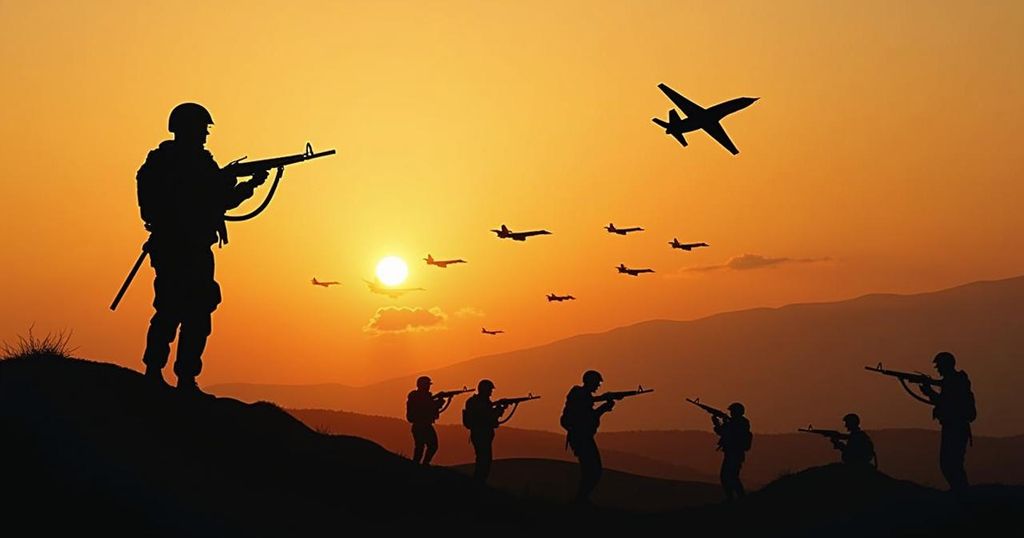The Israeli military has targeted Hezbollah in Lebanon, striking launchers aimed at Israel, following the confirmed killing of Hezbollah leader Hassan Nasrallah. Iran pledged retaliation, declaring public mourning. US President Biden described Nasrallah’s death as justice for prolonged terror, while Prime Minister Netanyahu indicated significant shifts in regional power dynamics.
The Israeli Defense Forces conducted extensive airstrikes against Hezbollah targets in Lebanon over the weekend, inflicting damage on numerous installations, including missile launchers aimed at Israel. This military action comes in the wake of the confirmed death of Hassan Nasrallah, the leader of Hezbollah, as announced by the Israeli army on Saturday. The killing of Nasrallah has marked a significant escalation in the ongoing conflict in the region. Iran has condemned this act and announced that Nasrallah’s death “will not go unpunished,” initiating five days of public mourning to honor the deceased leader. Ayatollah Ali Khamenei, Iran’s Supreme Leader, emphasized the enormity of this loss and asserted that repercussions would be forthcoming. Meanwhile, United States President Joe Biden referred to Nasrallah’s killing as a “measure of justice” in light of a purported history of terrorism attributed to him that spans four decades, while reiterating the necessity for a ceasefire between the conflicting parties. In the immediate aftermath of the lethal airstrike on Friday, Israeli Prime Minister Binyamin Netanyahu expressed his belief that this development would fundamentally alter the regional balance of power for years to come. The effect of these actions has been grave, with the Lebanese health ministry reporting a casualty count of at least 33 fatalities and nearly 200 injuries resulting from the Israeli military operations.
The recent escalation of hostilities between Israel and Hezbollah is rooted in longstanding tensions in the Middle East, particularly centered around Hezbollah’s alignment with Iran and its opposition to Israeli presence in the region. The killing of Hassan Nasrallah represents a pivotal turn in this narrative, as he was a significant figure in Hezbollah’s military and political framework. Iran’s reaction underscores the intertwined nature of these conflicts and highlights potential consequences for regional stability following the death of such a prominent leader.
In summary, the elimination of Hassan Nasrallah has triggered a swift and violent response from Israeli forces against Hezbollah in Lebanon, with Iran promising retaliation. This incident not only signifies a potential shift in power dynamics in the region but also raises serious concerns about the prospect for peace as international calls for a ceasefire have been reiterated amidst an escalating conflict.
Original Source: www.france24.com






